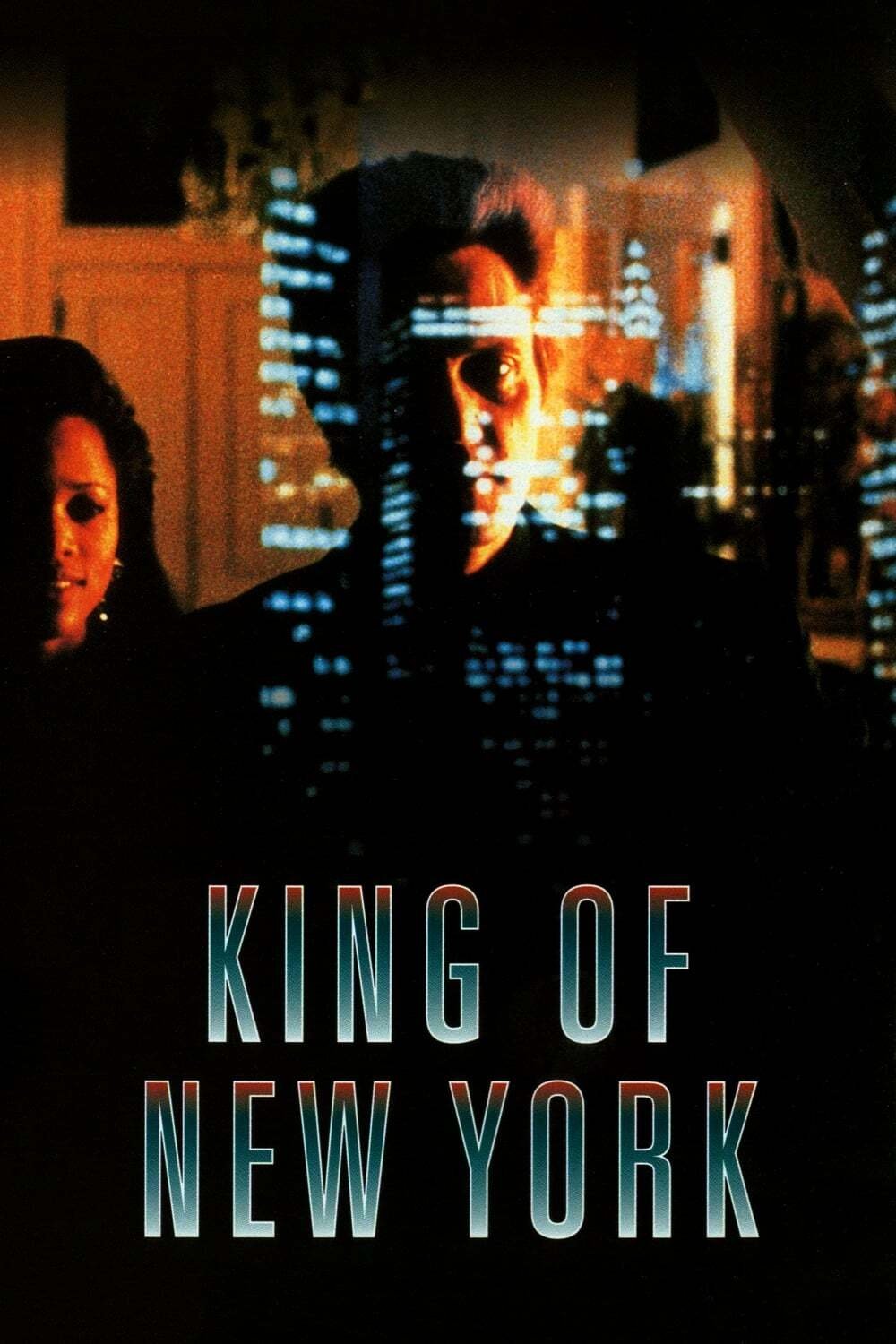There’s a moment in Abel Ferrara’s “King of New York” when Christopher Walken strolls through a gloomy, blue-lit hallway, hair slicked, cheekbones gleaming, eyes burning with the privilege of a man who’s read the end of the story and knows he’s the only one left standing. Walken gives a performance so electrically odd you half expect the camera to tilt, or for the rest of the movie to collapse into a pile of glittering dust. And at times it almost does, but not for the reasons Ferrara might have intended.
“King of New York” wants very badly to be the last word in urban gangster operas, a symphony of cocaine, neon, and corpses, with the mythic heart of “Scarface,” and the arthouse slither of a Cassavetes fever dream. Instead, it’s content to play the greatest hits from the genre’s sheet music, occasionally pausing for a flashy solo (usually from Walken) before lurching back into another scene involving friends and foes getting sprayed by angry men with guns. The red stuff flows freely, but that’s less a design than a compulsion, the film’s idea of crescendo being, as often as not, a shotgun blast to the face at a funeral. Ferrara can shoot violence, but what’s he really aiming at?
It’s Ferrara’s cataclysmic New York that almost convinces you you’re watching something important. His city is the other star here: narcotic and nocturnal, as gorgeously menacing as a Calvin Klein ad gone bad. The lens caresses the contours of the bridges, the glint off limousine doors, the dirty grandeur of hotel lobbies and dance floors. The soundtrack is all growling bass lines and cold synths, heroic by the standards of movies that care chiefly about the way you look when you’re murdered. But what’s dazzling under the cinematographer’s hand grows monotonous under Ferrara’s. Style, yes, enough to choke you, but substance? That’s mostly left in the back seat.
The plot, insofar as it tries to register a pulse, is run ragged by overfamiliarity. Frank White is a drug lord “with a heart”, the kind of kingpin who murders the competition, but not kids, or immigrants, or anyone who didn’t sign up for the rules of the game. Maybe he’s a “good” villain, or maybe the script can’t decide. White’s code is meant to set him above the rest, but the screenplay (from Ferrara’s longtime co-conspirator Nicholas St. John) is a carousel of revenge, empire-building, and legal wrangling that still feels like filler. When Walken isn’t onscreen, one’s mind drifts away, as if Ferrara’s vodka-soaked poetry could be set aside in favor of any episode of “Miami Vice.”
The real trouble is, Ferrara, for all his reputation as an outlaw auteur, can’t or won’t commit to his own sleaze. The film is at its liveliest when Laurence Fishburne’s trigger-happy Jimmy Jump pirouettes through clubs and alleyways, a one-man fashion show of criminal exuberance, spouting lines and bullets with equal relish. Fishburne is handed a one-dimensional role, but he turns it into a delicious cartoon, evil Looney Tunes with a gold tooth, a blast of nihilism amidst the posturing. If only everyone else in the film was allowed so much fun. The cops, in particular David Caruso, Wesley Snipes, Victor Argo, are stranded in a parallel movie, attending roll call in a police procedural that seems to have wandered in from a network pilot. The scenes among them have a kind of chemistry, but Ferrara doesn’t know what to do with it, so he falls back on existential rage, brotherhood, and, inevitably, more dead bodies.
Maybe Ferrara wants this bifurcation: the lawmen, defeated and frustrated, on their endless hunt, so eager for resolution they abandon the book and cross into vigilante territory. But the movie’s thesis, cops and criminals as two sides of a dying city, all rotting together, never feels more than a thesis. The script yells “corruption, futility!” but the images have already moved on to the next stylized execution. We get gestures at moral calculus, but no real argument.
The problem isn’t the violence or even the nihilism, Scorsese, De Palma, even Michael Mann have mined these veins but how numbly it’s all rendered here. What’s the body count when you don’t care who’s dead? Ferrara offers us corridors full of the slain, yet rarely pauses to ask us to mourn, or, what’s riskier, to savour. He sets up elaborate underworld rituals but whiffs the payoff: for all their supposed menace, his criminals are cardboard kings, his cops are stone-mouthed and inert, and his city is a chessboard where the pieces are knocked over as soon as they’re placed.
Yet, and here’s where things get perverse in a way Ferrara might appreciate, there’s no denying “King of New York’s” allure when it simply gives in to its own excess. The pacing, slack as it sometimes is, becomes a narcotic. The script, basic almost to the point of abstraction, finds in Walken’s icy remove a kind of accidental profundity. He’s not quite a character, but a presence, vampire-like and unkillable, haunted by ennui, radiating that peculiar Walken energy that’s equal parts threat and seduction. He makes lines like “I want to be mayor” sound like a curse and a prophecy. By the end, as Frank White bleeds out in the city’s indifferent heart, one wonders if he was ever meant to be more than a shimmer in the darkness—a king only because he had a crown and no one else wanted it.
For the rest, it’s all a dream of a crime film too content with its own surfaces—a movie obsessed with the way the barrel gleams, the way the city glitters, but not so much with the lives that are snuffed out under its gaze. “King of New York” is stylish, yes—the kind of style, though, that piles up like snow on the sidewalk, beautiful for a moment, gone at dawn, and barely missed.






